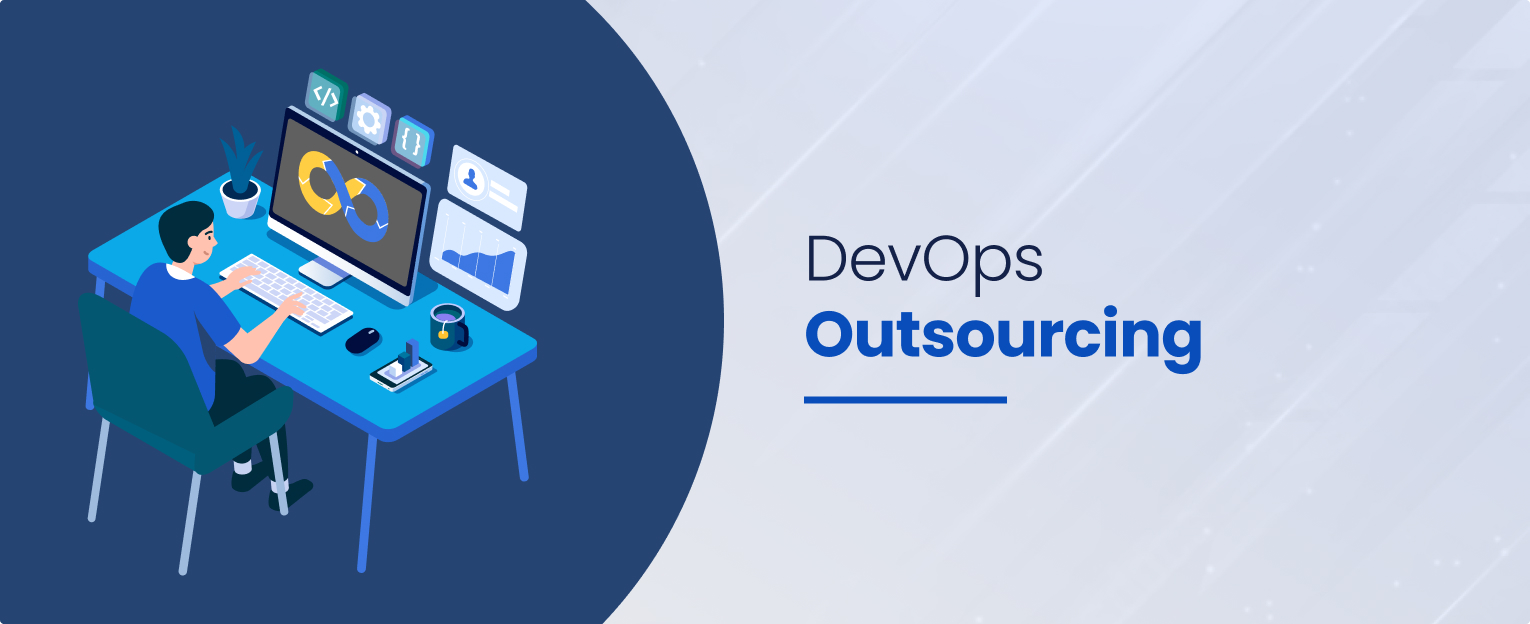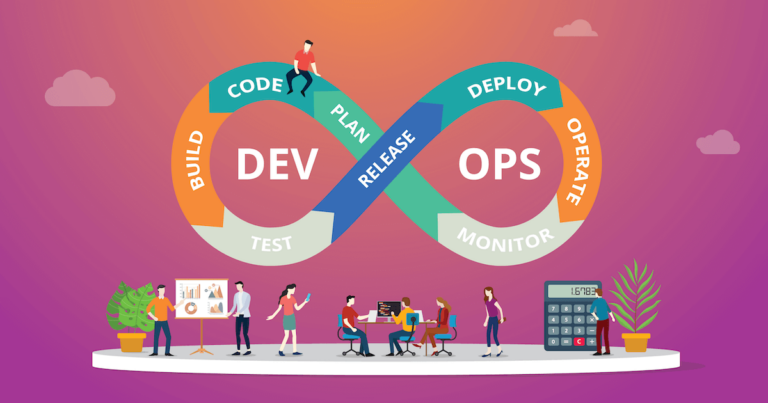DevOps is a set of practices that aims to unify software development and IT operations, resulting in faster, more reliable, and more secure delivery of software products and services. DevOps can help businesses achieve greater agility, efficiency, and quality in their software development lifecycle. However, implementing DevOps is not an easy task. It requires a significant investment in time, resources, and skills. Many businesses lack the in-house expertise or capacity to adopt DevOps successfully. This is where devops outsourcing comes in.
In this article, we will explore the pros and cons of devops outsourcing, and provide some tips on how to choose the best devops outsourcing partner for your project.
Overview
Devops outsourcing is the process of hiring an external service provider to handle some or all aspects of DevOps for your business. This can include planning, designing, developing, testing, deploying, monitoring, and maintaining your software applications and infrastructure. Devops outsourcing can offer many benefits for businesses that want to leverage the power of DevOps without the hassle of managing it internally. However, it also comes with some challenges and risks that need to be carefully considered before making a decision.
Benefits of Devops Outsourcing
Outsourcing DevOps can provide several advantages for your business, such as:
Faster development:
By working with a devops outsourcing partner, you can speed up your software development process and reduce time to market. You can leverage the expertise and experience of a dedicated devops team that can handle complex tasks and deliver high-quality results in a shorter timeframe. You can also benefit from the continuous integration and delivery (CI/CD) practices that enable faster and more frequent releases of your software products and services.
Access to a pool of DevOps experts:
Finding and hiring qualified DevOps professionals can be challenging and costly, especially in a competitive market. Outsourcing DevOps can give you access to a large pool of talented and skilled DevOps engineers, consultants, and managers who can provide you with the best solutions for your specific needs and goals. You can also save on the costs of training, retaining, and managing your own DevOps staff.
Enhanced security practices:
Security is a crucial aspect of DevOps, as it ensures the protection of your data, systems, and customers from cyberattacks and breaches. Outsourcing DevOps can help you improve your security posture by working with a service provider that follows the best security practices and standards, such as encryption, authentication, authorization, auditing, and compliance. You can also benefit from the security tools and technologies that your service provider uses to monitor and mitigate any potential threats or vulnerabilities.
Increased efficiency:
Outsourcing DevOps can help you optimize your resources and processes, and eliminate any waste or redundancy. You can focus on your core business activities and objectives, while your service provider handles the technical aspects of DevOps. You can also benefit from the automation and orchestration capabilities that your service provider offers, which can reduce human errors, improve productivity, and enhance performance.
Improved quality and flexibility:
Outsourcing DevOps can help you ensure the quality and reliability of your software products and services, by applying the best practices and methodologies of DevOps, such as agile, lean, and scrum. You can also benefit from the testing and feedback mechanisms that your service provider uses to detect and fix any bugs or issues before they affect your customers or users. Additionally, outsourcing DevOps can provide you with more flexibility and scalability, as you can adjust your requirements and expectations according to the changing market demands and customer needs.
Challenges of DevOps Outsourcing
Outsourcing DevOps can also pose some challenges and risks for your business, such as:
Restructure of work culture:
DevOps is not just a technical approach, but also a cultural shift. It requires a high level of collaboration, communication, and trust between the development and operations teams, as well as the business stakeholders. Outsourcing DevOps can disrupt your existing work culture and create some barriers or conflicts between your internal and external teams. You need to ensure that your service provider shares your vision, values, and goals, and that they can integrate well with your organization and culture.
Demands strong teamwork:
DevOps is a team effort, and it requires constant coordination and alignment between the different parties involved. Outsourcing DevOps can make this more difficult, as you have to deal with the challenges of working with a remote and distributed team. You need to establish clear roles and responsibilities, set realistic expectations and deadlines, and use effective communication and collaboration tools and platforms. You also need to monitor and evaluate the performance and progress of your service provider, and provide regular feedback and guidance.
Requires expertise:
DevOps is a complex and dynamic field, and it requires a high level of expertise and knowledge. Outsourcing DevOps can expose you to the risk of hiring a service provider that lacks the necessary skills, experience, or qualifications to handle your DevOps needs and challenges. You need to conduct a thorough research and assessment of your potential service provider, and verify their credentials, portfolio, and references. You also need to ensure that they have the relevant certifications, accreditations, and licenses to operate in your industry and region.
Initially takes time:
Outsourcing DevOps can take some time to set up and implement, as you have to go through the process of finding, selecting, contracting, and onboarding your service provider. You also have to define your scope, budget, and timeline, and agree on the deliverables and outcomes. You need to be patient and flexible, and allow some room for adjustments and improvements along the way.
Dependency on external service provider:
Outsourcing DevOps can make you dependent on your service provider, and limit your control and visibility over your DevOps processes and systems. You need to trust your service provider to deliver the results you expect, and to handle any issues or problems that may arise. You also need to ensure that your service provider is reliable, responsive, and available, and that they can provide you with adequate support and maintenance.
How to Choose the Best DevOps Outsourcing Partner for Your Project
Choosing the right devops outsourcing partner is crucial for the success of your project. Here are some tips on how to find and select the best service provider for your DevOps needs:
Define your goals and requirements:
Before you start looking for a service provider, you need to have a clear idea of what you want to achieve with DevOps, and what you need from your service provider. You need to identify your pain points, challenges, and opportunities, and define your scope, budget, and timeline. You also need to specify your expectations and criteria for quality, security, and performance.
Do your research:
Once you have your goals and requirements, you need to do some research and analysis of the market and the available service providers. You need to look for service providers that have the relevant skills, experience, and expertise to handle your DevOps project. You can use various sources and methods, such as online reviews, ratings, testimonials, referrals, case studies, and portfolios, to evaluate and compare the service providers.
Conduct interviews and assessments:
After you have shortlisted some potential service providers, you need to conduct interviews and assessments to get to know them better and to verify their capabilities and suitability. You need to ask them questions about their background, qualifications, approach, methodology, tools, technologies, and references. You also need to test their skills, knowledge, and performance, by asking them to provide samples, demos, or proofs of concept.
Negotiate and finalize the contract:
Once you have selected your service provider, you need to negotiate and finalize the contract and the terms and conditions of the agreement. You need to ensure that the contract covers all the important aspects of your project, such as the scope, deliverables, outcomes, timeline, budget, payment, ownership, confidentiality, liability, and dispute resolution. You also need to ensure that the contract is clear, transparent, and legally binding.
Conclusion
DevOps outsourcing can be a great option for businesses that want to enjoy the benefits of DevOps without the hassle of managing it internally. However, it also comes with some challenges and risks that need to be carefully considered before making a decision.
If you are looking for a reliable and experienced devops outsourcing partner, you can contact ONextDigital. We offer web development, mobile app development, UX/UI design, and white label software services, and we can help you implement DevOps successfully and efficiently. Contact us now to grow your business.







